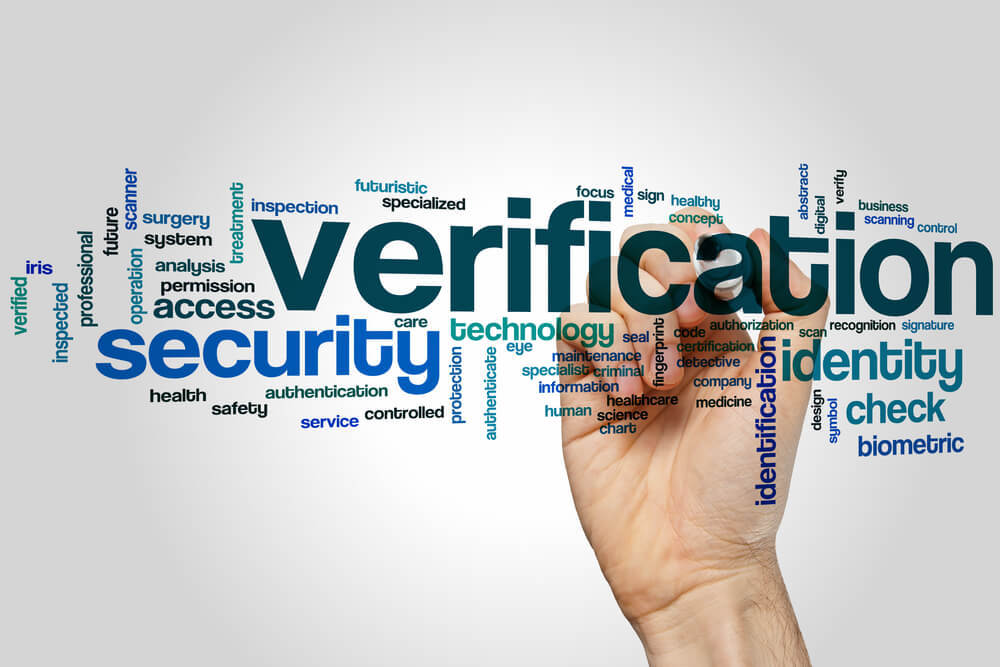The need to fight fraud and identity forgery, money laundering and terrorist financing require the identity verification processes that comply with the international quality standartds with guaranteed security and reliability support regarding the processes to verify identity remotely.
Identity Checks and Verification in Turkey
Identity verification is the important process of ensuring that a person is who they claim to be when opening a bank account, applying for a loan, or other financial processes. Though identity verification is an important security measure in combatting new account fraud, Identity verification also plays a role in Know Your Customer (KYC) and anti-money laundering (AML) efforts at financial institutions which assess and monitor customer risk.
Anti-money laundering
The need to fight fraud and identity forgery, money laundering and terrorist financing require the identity verification processes that comply with the international quality standartds with guaranteed security and reliability support regarding the processes to verify identity remotely.
Pursuant to your countries’ anti-money laundering, anti-terrorist legislation, either you or an agent of yours are required to verify copies of your client’s ID prior to them being relied upon by yourselves. In this regard, acting as an agent of your firm, we provide Identity Verification Services in Turkey including;
- Meet with the client.
- Witness client signature on the attestation letter.
- Compare client appearance and signature to the official ID provided by the client.
- Certify true a copy of the ID provided by the client and sign/complete attestation letter.
- Scan/Email the ID, attestation letter to you.
In case, an apostille is required, we provide Apostille services as well.
Face-to-face process
Our identity verification services are carried out in the traditional face-to-face process in which an individual personifies himself in our offices in Turkey and delivers his identity document (ID, passport or equivalent) at the same time that we verify that the photograph corresponds to the person who is delivering the document. A photocopy of the document is made, a form is filled out and checks are made, being ready to proceed with the pertinent steps by the identified user.
Identity verification ensures that there is a real person behind a process and proves that the one is who he or she claims to be, preventing both a person from carrying out a process on our behalf without authorization, and creating false identities or commit fraud.
Identity verification is a necessary process that ensures a person’s identity matches the one that is supposed to be. Identity verification is an essential requirement in most processes and procedures, both online and offline, in all kinds of situations, from opening a bank account to completing tax procedures electronically.
AML & KYC
Our identity verification services are aimed to help companies comply with Anti-Money Laundering (AML) and Know Your Customer (KYC) rules, identity verification is now a vital component to the transaction ecosystems of eCommerce companies, financial institutions, online gaming, and even social media. Through adopting digital fraud prevention methods, businesses can achieve AML and KYC compliance while addressing the risks associated with fraud.
Customers of various businesses, such as retail merchants, government entities or financial institutions, are often required to present an identification to complete a transaction. For instance, a merchant may require customer identification for various types of purchases (e.g., alcohol, lottery or tobacco purchases) or when certain types of payments (e.g., checks, credit cards) are presented to pay for transactions. Financial institutions usually require customers to present a form of identification to complete a withdrawal or deposit transaction, cash a check, or open a new account. Government entities may require identification for access into secure areas or other purposes. Other businesses may also require identification from customers.
Remote identity verification Communiqué
General Communiqué of Financial Crimes Investigation Board numbered 19, effective as of 1 May 2021, on remote identity verification (the “Communiqué”), was published in Official Gazette numbered 31470 of 30 April 2021.
The important provisions included in the Communiqué are briefly as follows:
- The obliged parties may use remote identification methods for the purpose of verifying the identity of the customer in the establishment of a permanent business relationship if the legislation pertaining to their main field of activity permits to establish a contract with methods that allow the verification of their identity without confrontation with their customers. These methods are determined separately by the obliged parties.
- Remote communication devices such as information technology or electronic communication devices through an electronic channel can be used in establishing a permanent business relationship with remote identification.
- The method to be applied must be designed to include all the information required for face-to-face identification and to contain minimum risk in the confirmation of the information. It is not mandatory to take a signature sample for remote identification.
- The information obtained in remote identification is kept in a way that allows the information and documents for confirmation and the records in all kinds of media to be given to the competent authorities when requested.
- With the customer’s application, a risk assessment is made about the applicant in order to create and evaluate the customer profile. In this context, in addition to the mandatory information about the customer, at least the purpose and nature of the business relationship, the source of the assets and the funds belonging to the customer, and the average income information, the monthly estimated transaction volume and the number of transactions of the account to be opened are collected.
- Financial institutions and certain non-financial businesses and professions apply one or more or all of the following measures, in proportion to the risk identified within the framework of the risk-based approach, in transactions related to remote identification:
-
- Obtaining additional information about the customer and updating the identity information of the customer and the real beneficiary more frequently.
-
- To enter into a business relationship, to maintain the current business relationship or to connect the execution of the transaction with the approval of a senior officer.
-
- Keeping the business relationship under strict supervision by increasing the number and frequency of the controls applied and determining the types of transactions that require additional control.
-
- To require the first financial transaction to be made from another financial institution to which the principles regarding the recognition of the customer apply in establishing a permanent business relationship.
-
- To closely monitor transactions that do not comply with the financial profile and activities of the customer or are not related to their activities.
-
- To take appropriate and effective measures, including determining the amount and number of transactions limit.
 English
English Türkçe
Türkçe Français
Français Deutsch
Deutsch










Comments
No comments yet.